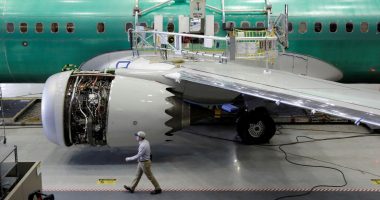HONG KONG—An Omicron outbreak triggered by returning aircrew breaking quarantine rules has pitted Hong Kong officials against the city’s flagship carrier, Cathay Pacific, prompting tighter quarantine rules that the airline says will worsen its pandemic losses.
Hong Kong Chief Executive Carrie Lam has said Cathay Pacific Airways Ltd. will be held accountable for any fault found in the outbreaks, which pierced the city’s zero-Covid bubble late last year. Her government is examining whether the airline broke Covid-19 rules by allowing passenger flight crew to return on cargo planes to get quarantine exemptions.
Quarantine measures for returning aircrew on all airlines have also been tightened, requiring them to isolate for seven days in a hotel rather than three days at home. That’s putting more strain on Cathay, which has seen monthly passengers drop by around 95% from pre-pandemic levels and squeezed the capacity of one of the world’s leading air-cargo carriers.
About 70 Covid-19 cases have been tied to two returning aircrew members from separate flights since December. Police have charged two former flight attendants—one of whom was tied to a cluster—with violating Covid-19 restrictions.
Cathay’s chairman, Patrick Healy, has responded to critics, saying staff who broke the rules had been fired and that the airline complied with regulations. In a video to employees earlier this month, after Mrs. Lam criticized the company, he thanked his crew for sacrifices they had made to keep the city connected through the pandemic, spending a collective 62,000 nights in quarantine in 2021.
The blame game adds to continuing struggles at Cathay, which hasn’t seen travel bounce back from early pandemic lows as many other airlines have. Hong Kong’s tough border restrictions to keep zero infections in the city mean Cathay is running far fewer passenger flights, with tourism almost eliminated. It took a US$5 billion government-led bailout in June 2020.
Cathay cushioned the blow by focusing on cargo services, refitting many passenger planes to carry cargo, and operated at about 65% of pre-pandemic cargo levels last year. That narrowed losses attributable to shareholders for 2021 to an expected HK$6.1 billion, compared with HK$21.6 billion a year earlier, the airline said Monday.
But in January cargo slumped to 20% of pre-pandemic levels as tougher quarantine rules kicked in. The airline said Monday it expects to burn more cash, up to 1.5 billion Hong Kong dollars, the equivalent of US$192.6 million, a month starting in February.
“Until conditions improve, we are doing everything in our power to maximize capacity,” Augustus Tang, Cathay’s chief executive officer, said Monday. “We are exploring all options to keep the flow of people and goods moving despite the considerable challenges we continue to face.”
The spat has larger consequences for the city’s role as a global business, tourism and logistics hub. Hong Kong’s quarantine rules for passengers and aircrew have angered some business groups and airlines, with some executives stuck abroad or leaving the city.
U.S. freight company FedEx Corp. decided in November to relocate its Hong Kong-based pilots without exiting the market because of the city’s unpredictable quarantine rules.
The government has since Jan. 8 temporarily banned airlines including Cathay from flying in from eight countries with severe Omicron outbreaks, including the U.S. Many other airlines have significantly cut back on passenger flights.
“These quarantine rules are destroying the future viability of these airlines. How long can this last?” said Mayur Patel, head of Asia for air-traffic intelligence firm OAG Aviation. While Hong Kong’s connectivity and access to different markets is hard to replace, “It’s a perfect opportunity for other hubs and airlines to try and grab up business,” he said.
Under China’s most recent five-year plan, Beijing identified Hong Kong’s status as an international aviation hub as a priority to be enhanced. Until 2020, Hong Kong’s airport led the world in air-cargo volume. It was dethroned by Memphis International Airport, home to FedEx.

People waited to be tested for Covid-19 in Hong Kong, which is dealing with outbreaks after months of no infections.
Photo: Louise Delmontte/Bloomberg News
Throughout the pandemic, Hong Kong defended its borders against the coronavirus, mandating lengthy quarantine for arrivals. The city didn’t record a local case of Covid-19 for months. In December, a Cathay flight attendant who later tested positive for Covid-19 didn’t comply with home quarantine orders to have lunch with his father at a mall restaurant. Some other diners also later tested positive for Covid-19.
That was followed by a separate outbreak begun by the mother of a returning flight attendant. The cases, though then limited to a few dozen, led to the closure of night venues as well as gyms, bars, cinemas and beauty salons until at least Feb. 3. Over the weekend, the Covid-19 outlook in the city worsened as a separate outbreak linked to a returning traveler led to the lockdown of a public-housing block.
The city of 7.4 million has recorded close to 13,400 cases and 213 deaths associated with Covid-19 since early 2020.
Besides facing longer quarantine, any aircrew who tests positive for the coronavirus after arriving in Hong Kong spends weeks in a hospital, whether or not they show symptoms.
Airline staff say the new rules disproportionately affect Hong Kong-based crew such as those working for Cathay, since carriers with crew based in other places can fly in and out of the city without stopping over or can change pilots in regional hubs like Seoul and Bangkok.
Ten Cathay pilots who asked not to be named said the restrictions have put them under immense strain.
They say that by flying to other places, they put themselves at risk of catching Covid-19, even with the requirement to go straight to their hotels at their overseas destination. On their return, they say, they are shunned by the local population, which one union described as being treated like “rats during the great plague.” Pilots have reported being denied essential services, and neighbors distancing themselves, while one even reported being spat on, the union said.
In November 2020, many Cathay pilots and crew were required to take pay cuts, with compensation and benefits falling 40% to 60%. Some said they had to refinance their homes. Others are considering leaving the airline, even if that would entail joining another carrier at a lower rank.
Write to Natasha Khan at [email protected]
Copyright ©2022 Dow Jones & Company, Inc. All Rights Reserved. 87990cbe856818d5eddac44c7b1cdeb8








